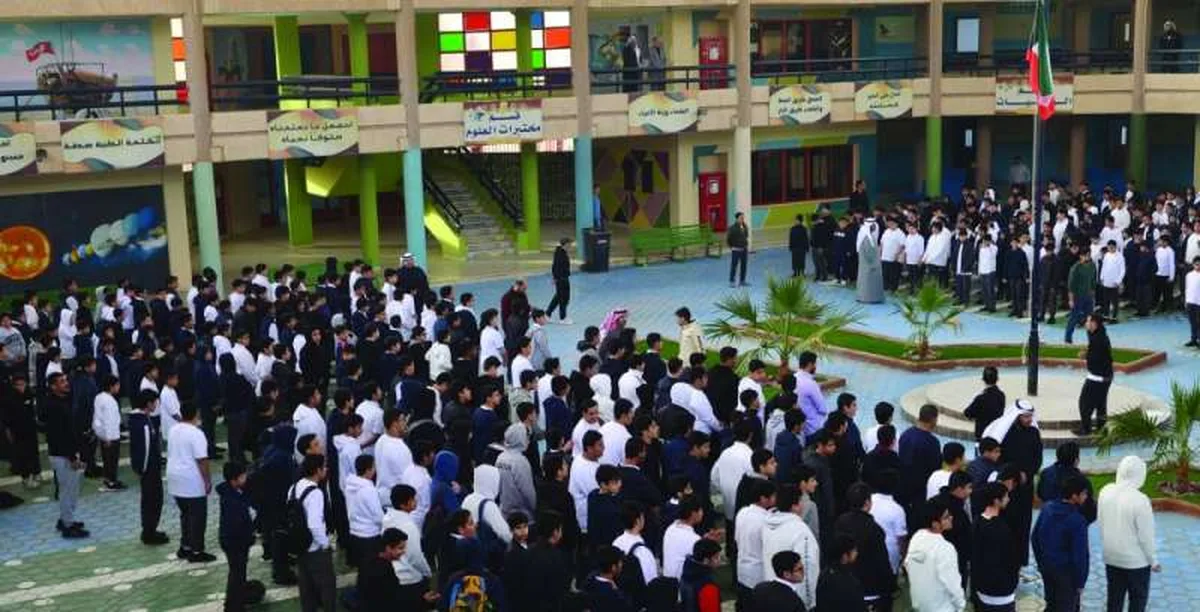13/10/2025
13/10/2025

KUWAIT CITY, Oct 13: The Assistant Undersecretary for Educational Affairs at the Ministry of Education, Engineer Hamad Al-Hamad, has issued a circular strictly prohibiting any school activities that promote religious or political fanaticism or incite sectarianism and partisanship.
In the circular, Al-Hamad emphasized that the morning assembly plays a vital role in strengthening students’ discipline, sense of belonging, and readiness—both mentally and physically—for the school day. It also promotes values of patriotism, social interaction, communication, and overall educational development.
To ensure that morning assemblies and school activities achieve their intended educational objectives, Al-Hamad directed all school administrations to adhere to a set of specific measures:
- Compliance with Cabinet Resolution No. 691 of 2024, which requires all public entities, institutions, and official delegations to refrain from raising the flag or playing the national anthem of any foreign country during official events held inside or outside Kuwait.
- Adherence to Ministerial Resolution No. 135 of 2025, which regulates the organization of celebrations within schools.
- Implementation of General Bulletin No. 17 for all three educational levels, outlining the objectives, mechanisms, and criteria for well-planned school activities.
The circular further mandates:
- A complete ban on any competitions, events, or activities that encourage religious or political extremism or promote sectarian or partisan ideas.
- The organization of educational and cultural programs that enhance the learning process and nurture students’ talents and abilities.
- Mandatory attendance for all students, including latecomers, during the morning assembly to ensure equal participation and benefit from the activities.
- A focus on building students’ self-confidence through participation in various educational and co-curricular activities that complement classroom learning.
Al-Hamad concluded that these guidelines aim to maintain a neutral, inclusive, and educational environment in schools, fostering a spirit of unity and national loyalty among students.


